nigeria economy
At a factory in southeast Nigeria, dozens of new white buses stand at the end of the production line, apparently ready to take on some of Africa’s toughest roads.
Unfortunately for Nigeria’s main domestic vehicle assembly firm they are going nowhere for now.
In an economy starved of dollars because of the slump in oil prices, Innoson Vehicle Manufacturing (IVM) cannot buy imported components, leaving the buses without engines – a metaphor for the problems afflicting Africa’s most populous nation.
At IVM, whose products are intended to show Nigeria can export more than oil, workers have already been sent home because of a lack of parts from Japan, China and Germany, which account for much of the content of the vehicles they produce.
“Our production capacity last year was 4000 vehicles for all the models, this year we planned to get up to 6000 but unfortunately because of the issue of foreign exchange, sourcing of foreign exchange, we did not move much,” said IVM Chairman Innocent Chukwuma.
GDP figures on Wednesday (August 31) confirmed that the continent’s biggest economy slid into its first recession in 25 years in the second quarter, shrinking by 2.06 percent after a 0.36 percent contraction in the first three months of the year.
The poor state of the manufacturing sector in particular is a blow to President Muhammadu Buhari, who has been pushing hard to wean Nigeria off its dependence on crude oil sales, which make up 70 percent of government revenues.
Launched in 2010, IVM had raised its targets due to a “Made in Nigeria” campaign that generated strong sales to the police, state agencies and churches.
Those ambitions are now looking shaky if promises of government assistance fail to materialise, Chukwuma said.
“Government have assured us that they are in control that things will become better so we are waiting for them to things to be okay, so that the work will continue how it is doing before so I believe and I believe that they are doing something so if finally they can’t do anything, we will lay off some workers.”
In the southeastern city of Aba – known as the “Japan of Africa” until the 1970s – more than 2,000 shoemakers have shut because they cannot pay for imported glue or synthetic leather.
With the inflated input costs, consumers in neighbouring Cameroon, who used to buy most of Aba’s shoes, are now opting for cheaper Chinese footwear.
Until recently, three trucks laden with shoes and bags left the city for Cameroon every week. Now it is one every fortnight, traders at the city’s almost deserted motor park said.
Aba’s shoemakers’ association once had almost 6000 members headed by Goodluck Nmeri, who says many have now been forced to abandon the trade.
“So many of them right now are riding keke, okada, this bike; some of them have joined other vocations. Initially, in early 70’s, 80’s if you come down here in powerline, this place was booming with crowd of people, workers. I started by training up to five within my own table but today hardly you will see anyone with any apprentice,” he said.
Government officials point to a sizeable investment this year by U.S. drinks giant Coca Cola in local juice and dairy firm Chi Ltd as evidence of a turnaround in Nigeria’s fortunes, but business people say promises of government support fail to materialise.
A government source said last week that Buhari wanted parliament to grant him extra powers to speed up plans such as easing visa restrictions for potential investors.
The government under Buhari has spent 400 billion naira ($1.2 billion) on building roads or improving the power supply but that has had little impact in a country of 190 million that has suffered decades of mismanagement.
The main roads around Aba – whose shoes are said to have rivalled even Italian footwear in the decade after independence – are littered with pot-holes and in some parts are little more than dirt tracks.
“We are expecting a lot from the federal government, number one, cash to finance our business, then the equipment, the machinery we use, we be using to do the work so that it will be easier for us,” said shoemaker, Kingsley Ogbonna.
The central bank, backed by the government, has given incentives for banks to give more loans to small businesses but few lenders take the risk these days




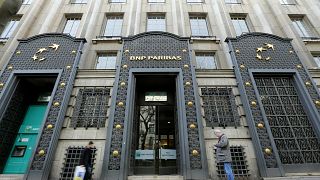
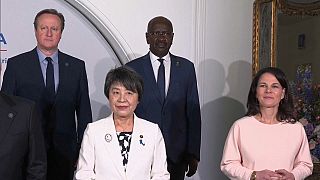
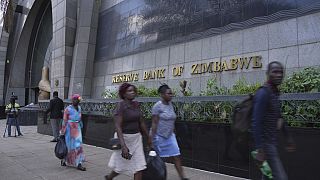
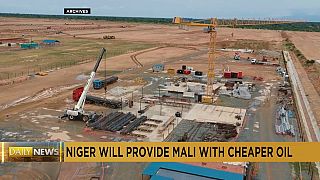
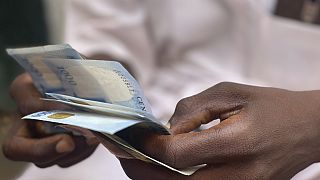
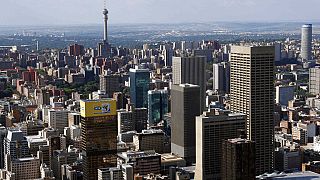
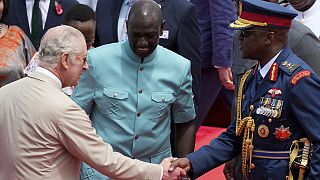
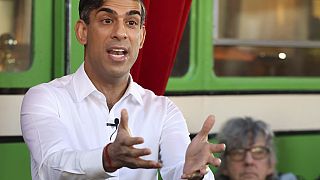

01:09
Nigeria sees record inflation in March
00:50
Nigeria recovers millions in corruption probe at key ministry
01:06
Nigeria files fresh charges against ex-central bank chief
Go to video
Binance executive detained in Nigeria amid a crypto crackdown has escaped custody
02:29
DRC: concern over the potential development of oil drilling
Go to video
Activists urge Nigeria to delay Shell's $2.4 billion sale of assets in deeply polluted Niger Delta